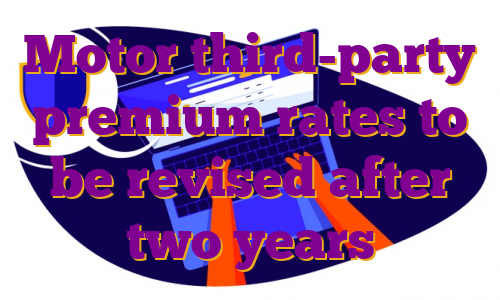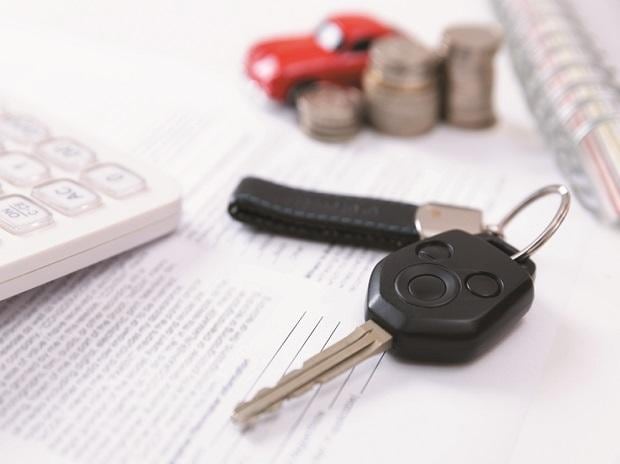The upward revision in the third-party insurance premium for two-wheelers, which has come into force from June 1, is unlikely to materially impact the demand, credit ratings agency ICRA said on Friday.
ICRA said it expects a 7-10 per cent year-on-year volume growth in the two-wheeler industry this fiscal, despite inflationary pressures and elongated semiconductors shortage due to the Russia-Ukraine war.
After a two-year moratorium due to the COVID-19 pandemic, third-party insurance premium rates have been hiked between 15-20 per cent for the premium category (more than 150 cc category).
However, the entry-level motorcycles and scooters (75 cc-150 cc), which accounts for 89 per cent in the overall two-wheeler volume, has been spared of any hike.
The increase in third party insurance premiums is, therefore, unlikely to materially impact the two-wheeler demand, ICRA said.
Moreover, given the fact that the less than 1 per cent increase in road price for the premium segment on account of the rate hike is also not significant, the rate hike is unlikely to have a major impact on consumer sentiments and comes as a relief for the industry, which has been grappling with muted demand, it stated.
Domestic two-wheeler industry volumes contracted for a third consecutive year in FY2022, with the consumer sentiments remaining muted. The cost of ownership of a two-wheeler has been steadily increasing over the years, thereby impacting affordability, said Rohan Kanwar Gupta, Vice President, Corporate Ratings, ICRA.
“Original equipment manufacturers (OEMs) have been forced to hike prices on account of multiple factors such as raw material hardening, transition to stringent emission norms and changes mandated by regulations, especially with regards to safety standards.
“In FY2022, even as there was no impact of regulatory notifications on prices, the OEMs had to pass on raw material hardening impact through multiple price hikes. As a result, enhanced cost of acquisition coupled with heightened crude prices have led to a significant increase in the cost of the ownership,” said Gupta.
Noting that aided by a recovery in rural sentiments post a healthy rabi harvest and pent up demand for festivals and weddings, wholesale volumes of motorcycles posed a recovery in April and May; ICRA said, reopening of education institutes and reversal in work-from-home trends in corporate India also supported the scooter offtake, thereby raising hopes of recovery in prospects of the two-wheeler industry.
As demand remains fragile, a further increase in the cost of acquisition could have constrained demand recovery for 2Ws in the near term, the ratings agency said, adding, the fact that the entry-level two-wheeler segment has been left out of the insurance price hike, comes as a relief for the industry.
Even as inflationary pressures and elongated semiconductor chip shortage due to the ongoing Russia-Ukraine conflict continue to remain headwinds for the industry, a broader vaccination coverage, reopening of education institutes and corporates; and expectations of normal monsoon, all coupled with a low base, are expected to drive a 7-10 per cent year-on-year volumes growth for the industry in FY2023.(Only the headline and picture of this report may have been reworked by the Business Standard staff; the rest of the content is auto-generated from a syndicated feed.)
 Dear Reader,
Dear Reader,
Business Standard has always strived hard to provide up-to-date information and commentary on developments that are of interest to you and have wider political and economic implications for the country and the world. Your encouragement and constant feedback on how to improve our offering have only made our resolve and commitment to these ideals stronger. Even during these difficult times arising out of Covid-19, we continue to remain committed to keeping you informed and updated with credible news, authoritative views and incisive commentary on topical issues of relevance.
We, however, have a request.
As we battle the economic impact of the pandemic, we need your support even more, so that we can continue to offer you more quality content. Our subscription model has seen an encouraging response from many of you, who have subscribed to our online content. More subscription to our online content can only help us achieve the goals of offering you even better and more relevant content. We believe in free, fair and credible journalism. Your support through more subscriptions can help us practise the journalism to which we are committed.
Support quality journalism and subscribe to Business Standard.
Digital Editor
!function(f,b,e,v,n,t,s){if(f.fbq)return;n=f.fbq=function(){n.callMethod?n.callMethod.apply(n,arguments):n.queue.push(arguments)};if(!f._fbq)f._fbq=n;n.push=n;n.loaded=!0;n.version=’2.0′;n.queue=[];t=b.createElement(e);t.async=!0;t.src=v;s=b.getElementsByTagName(e)[0];s.parentNode.insertBefore(t,s)}(window,document,’script’,’https://connect.facebook.net/en_US/fbevents.js’);fbq(‘init’,’550264998751686′);fbq(‘track’,’PageView’); .




 Dear Reader,
Dear Reader,